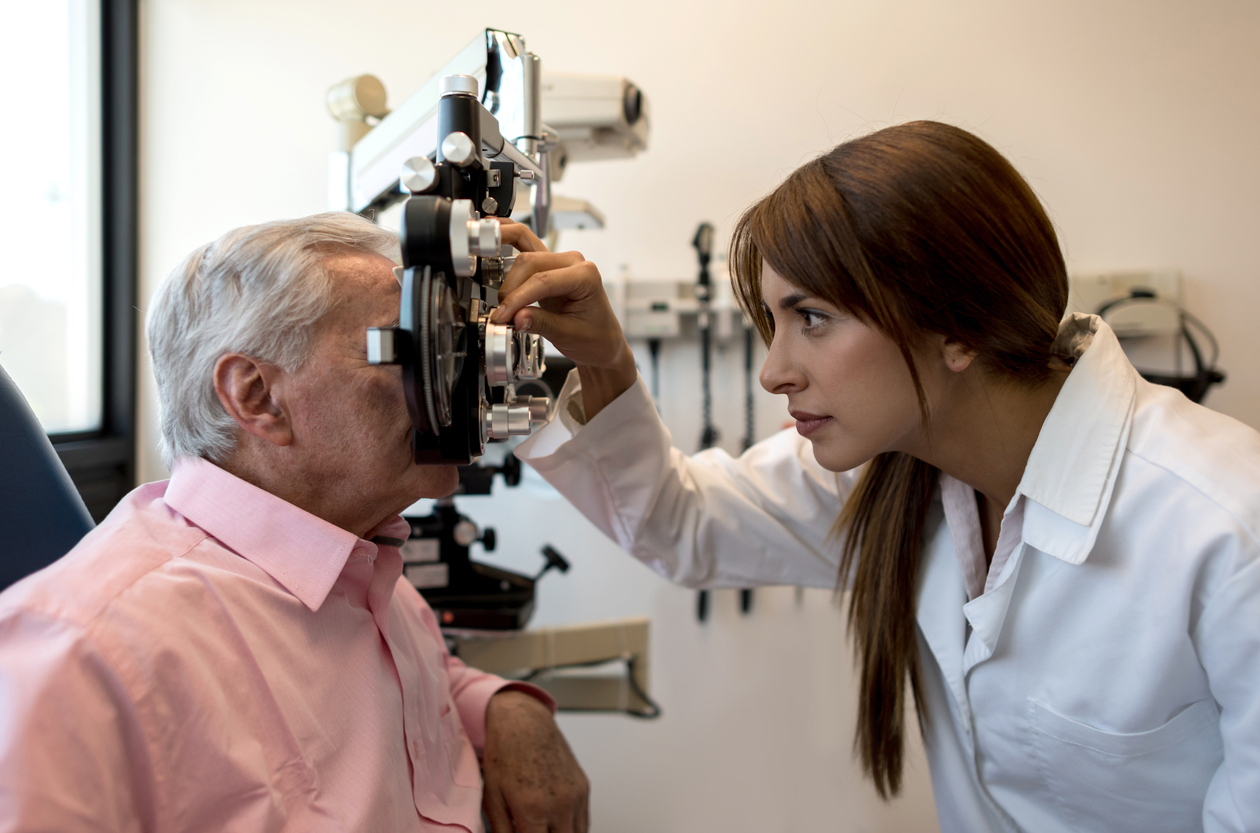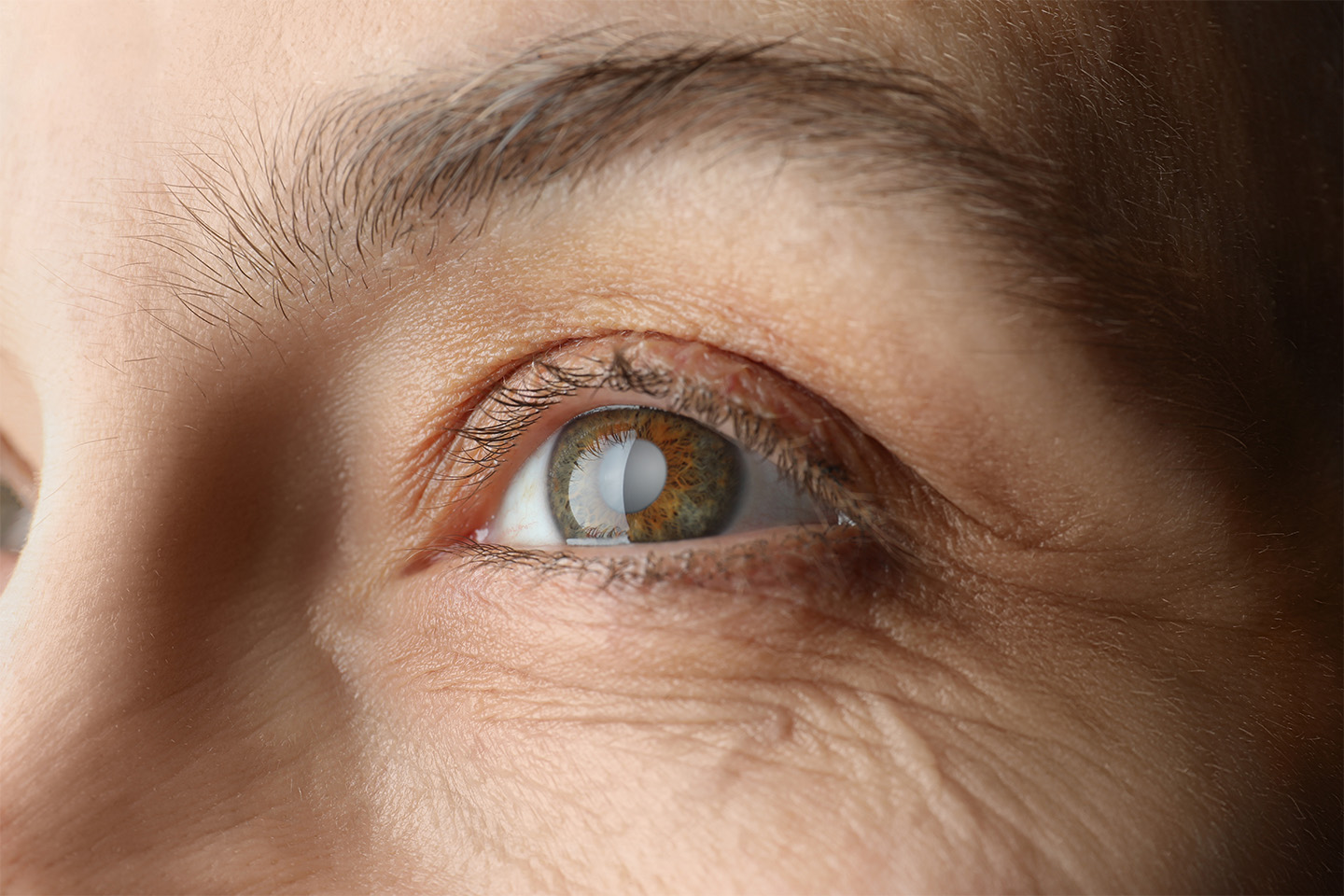Important Questions to Consider Before You Undergo LASIK

Considering LASIK, but don’t know whether it’s right for you? Ask yourself — and your eye doctor — these six questions.
If you’ve been wondering whether you’re a good candidate for LASIK eye surgery, it’s important to weigh all the factors at play. You’ll want to think through your reasons for considering the surgery and have clear expectations for the results.
Not everyone is an appropriate candidate for LASIK, so your best bet is to talk to your eye doctor — you might be surprised by what’s possible. It’s important to ask both yourself and your doctor the following questions as you consider life-changing LASIK surgery.
Are my contacts or glasses a burden?
You’ve probably been asking yourself whether your imperfect vision is interfering with your life just a little (or a lot) more than you would like. For some patients, contact lenses or glasses may be an unreasonable inconvenience. For instance, if you’re an athlete or sports enthusiast, it can be hard to find a solution that lets you be as active as you need to be without compromising either your vision or game.
Additionally, over the course of a lifetime, there’s a steep cost to having bad vision. When you tally up how much patients spend on glasses and/or contact lenses over the years, it can easily amount to thousands of dollars. As such, investing in LASIK can actually save you money over the long term.
Am I a good candidate for LASIK?
If you’re not sure, ask your doctor whether you’re at an appropriate age for undergoing LASIK. Your eyesight may fluctuate until around age 25, so younger patients need to be sure they’ve had a stable prescription for a couple years before considering LASIK. Visual acuity can also fluctuate during pregnancy or menopause as hormone levels change within the body. Further, most people will experience presbyopia (age-related farsightedness) after about age 45, so many patients will eventually need reading glasses even after LASIK.
Whether you’re nearsighted, farsighted, or have astigmatism, you want to be sure your refractive error is within the FDA-approved range for LASIK surgery — ask your doctor if your prescription qualifies. Originally, LASIK wasn’t recommended for those with strong eyeglass prescriptions, but advancements in laser technology mean a greater range of patients is now eligible.
You should also evaluate whether any of your lifestyle factors — special work requirements, sporting activities, etc. — may disqualify you for LASIK. For instance, the military and certain other organizations may discourage you from getting LASIK. Further, patients who participate in contact sports like boxing, wrestling, or martial arts should be aware that a blow to the eyes can more easily injure your cornea after LASIK surgery — especially during the recovery period.
Do I have any underlying conditions that could complicate LASIK?
You need to be sure to inform your doctor if you have an autoimmune disease, diabetes, dry eyes, uveitis, a traumatic eye injury or corneal scarring, cataracts, glaucoma, retinal disease, or have had previous eye surgeries. These conditions (and a number of others) may make you a poor candidate for LASIK.
Additionally, tell your doctor about any prescription or over-the-counter medications you’re taking, as some drugs may complicate the LASIK procedure. Underlying conditions or ongoing treatment regimens don’t necessarily rule out the procedure, but they may require a specialized approach and/or extend your overall recovery time.
What results can I expect?
Even though the majority of LASIK procedures produce excellent outcomes, you should still have realistic expectations of the results you will be able to achieve with LASIK. After undergoing LASIK surgery, about 90% of patients achieve 20/20 vision or better, while 99.5% go on to see 20/40 or better.
Some patients do experience side effects like dry eyes, halos around bright lights, hazy vision, and glare, but these issues typically subside within several months. In rare cases, a doctor may recommend a follow-up procedure several months after the first procedure to fine-tune results or eliminate lingering side effects.
Generally speaking, however, LASIK is a permanent procedure, and very few patients end up needing additional surgical work — even if their prescription naturally changes with age.
How long will the recovery process take?
Patients typically need very little downtime after LASIK, and they may even experience clearer vision immediately (though it is normal to have some blurred vision at first). Some patients experience minor fluctuations in their vision for between six months and a year, after which their vision stabilizes.
While you should be able to go to work the day after your procedure, if you experience hazy vision, it may be easier to take a day or two off. It’s also important to wear a protective eye shield for the first few nights after surgery, as you want to avoid irritating the flap on your cornea by rubbing your eyes as you slumber. Similarly, you should avoid playing contact sports for at least a month following your procedure to ensure your eyes get the chance to fully heal.
Am I ready to schedule an appointment?
If you’re considering LASIK, talk to the experienced team of eyecare professionals at ICON Eyecare. We can answer any questions you might have during an initial consultation, and determine whether LASIK is the right choice for you. If you’re interested in taking the first step down the road to clearer vision, contact us today.
[DISPLAY_ULTIMATE_SOCIAL_ICONS]








